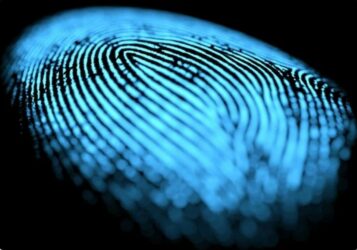 In today’s digital age, our fingerprint has become our identity. Fingerprint is used for various purposes such as unlocking smartphones, laptops, and other digital devices. It is also used for driving license, e-verification, and access to organizational premises. It brings up the question as to whether the fingerprint will work after the death of an individual.
In today’s digital age, our fingerprint has become our identity. Fingerprint is used for various purposes such as unlocking smartphones, laptops, and other digital devices. It is also used for driving license, e-verification, and access to organizational premises. It brings up the question as to whether the fingerprint will work after the death of an individual.
It is possible that loved ones may need to access their devices. Or in a criminal case, the investigating agencies may want access to the deceased person’s devices. So, will fingerprint work after death? Or does fingerprint change after death? To answer such questions, here are some things we need to know.
Loss of electrical signal
When alive, the human body produces a constant flow of electricity. But after death, the body loses its electric flow. On television or in movies, you may have seen people use a dead man’s fingerprint to open something. And it may appear to be a clever thing to do. However, in real life, you probably won’t be able to use a dead man’s fingerprint to unlock anything.
The reason is that most of current generation devices use capacitive sensors. These can detect electrical conductivity on their surface. They respond to electrical conductivity to perform various functions including unlocking digital devices. As the tissues lose electrical charge after death, it won’t be able to register on phone’s fingerprint sensor.
Does fingerprint change after death?
Other than unlocking digital devices, fingerprint may also be needed to identify a deceased individual. This may become necessary if the individual’s face may not be recognizable. Or if there is no other means to identify the individual. This poses the question if fingerprint changes after death. Well, the answer can be both ‘yes’ and ‘no’ based on conditions.
The fingerprint may not change soon after the death of an individual. However, over a period of several days, the body will start to decompose. This might make it difficult to take a fingerprint. However, forensic science has made significant advancements over the years. With advanced tools, forensic experts have been able to derive fingerprints from even decomposed bodies.
What can you do to protect your fingerprint data?
It is possible that many individuals may not want their private data to be accessed after their death. For these people, it’s good to know that fingerprint does not work after death. However, you also need to consider that you may become unconscious. During this time, someone may use your fingerprint to access your private data. Electrical charge is not impacted when you are unconscious. Another state is coma, where also electric charge is maintained by the body.
For added protection, it is better to have a double layer of security. Complex passwords are still the most secure, even though they may be a little difficult to remember and use. If you want enhanced security, you will have to use complex passwords.
 Newspatrolling.com News cum Content Syndication Portal Online
Newspatrolling.com News cum Content Syndication Portal Online







